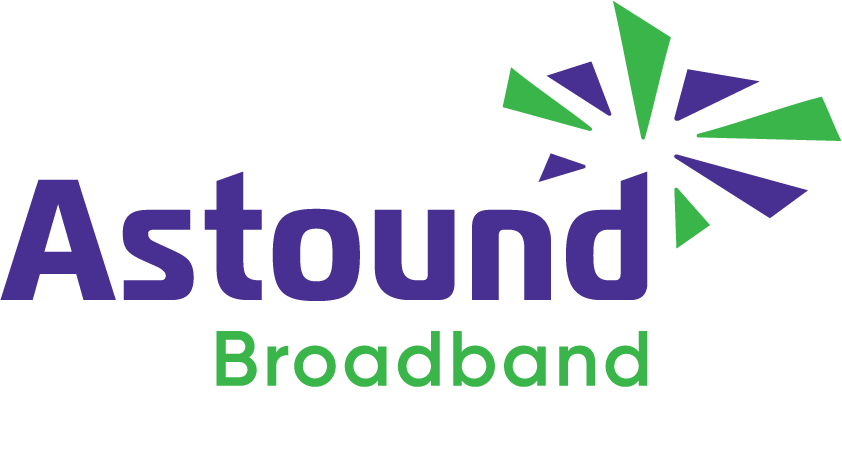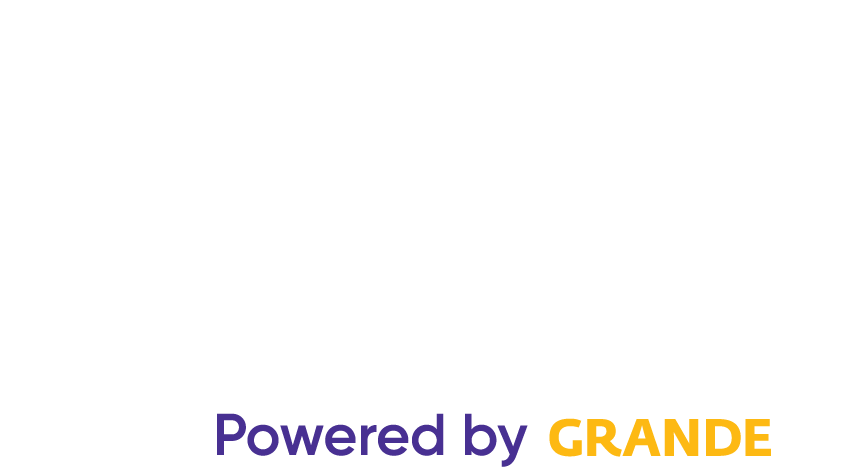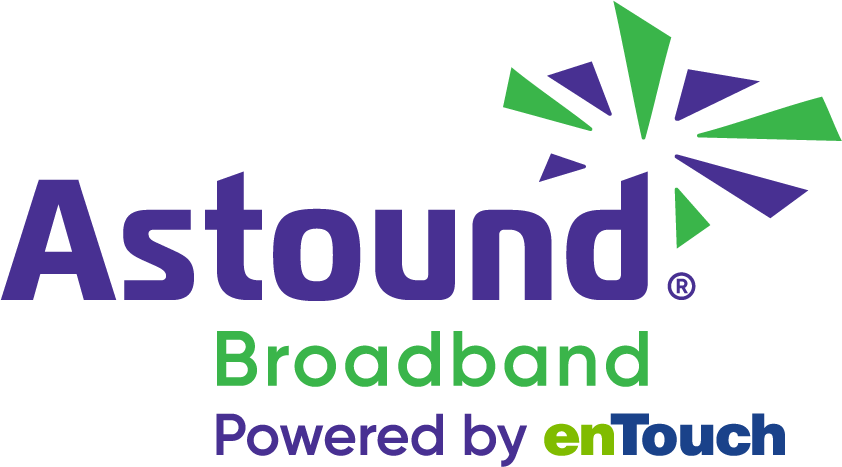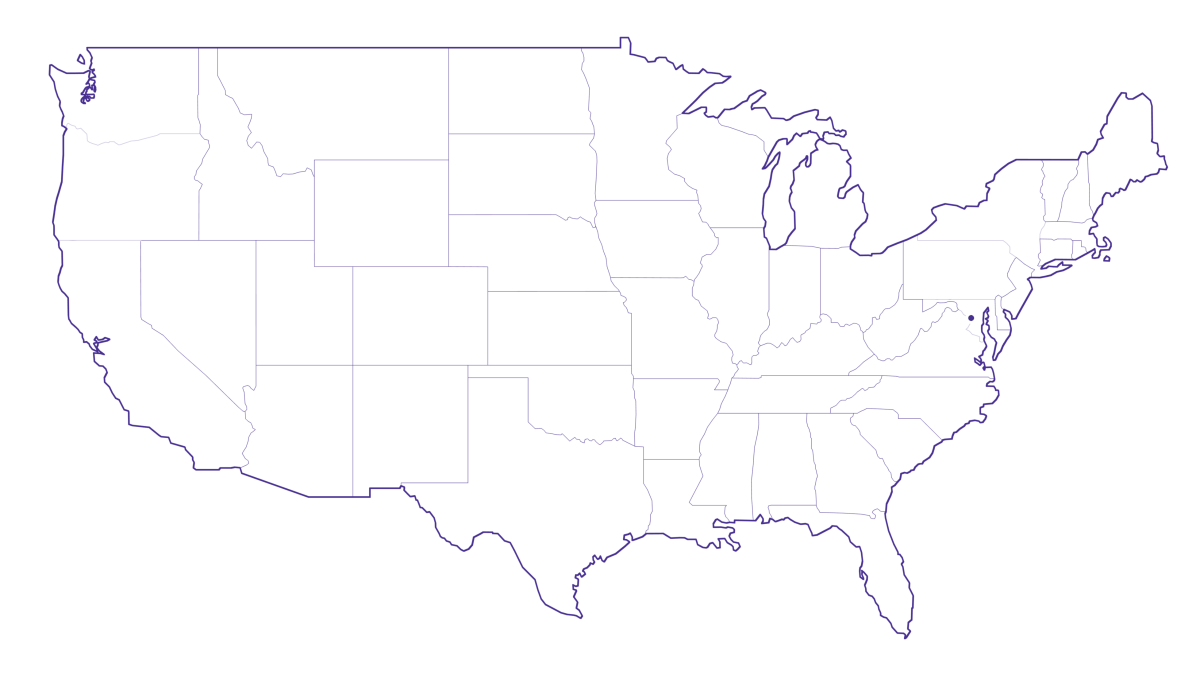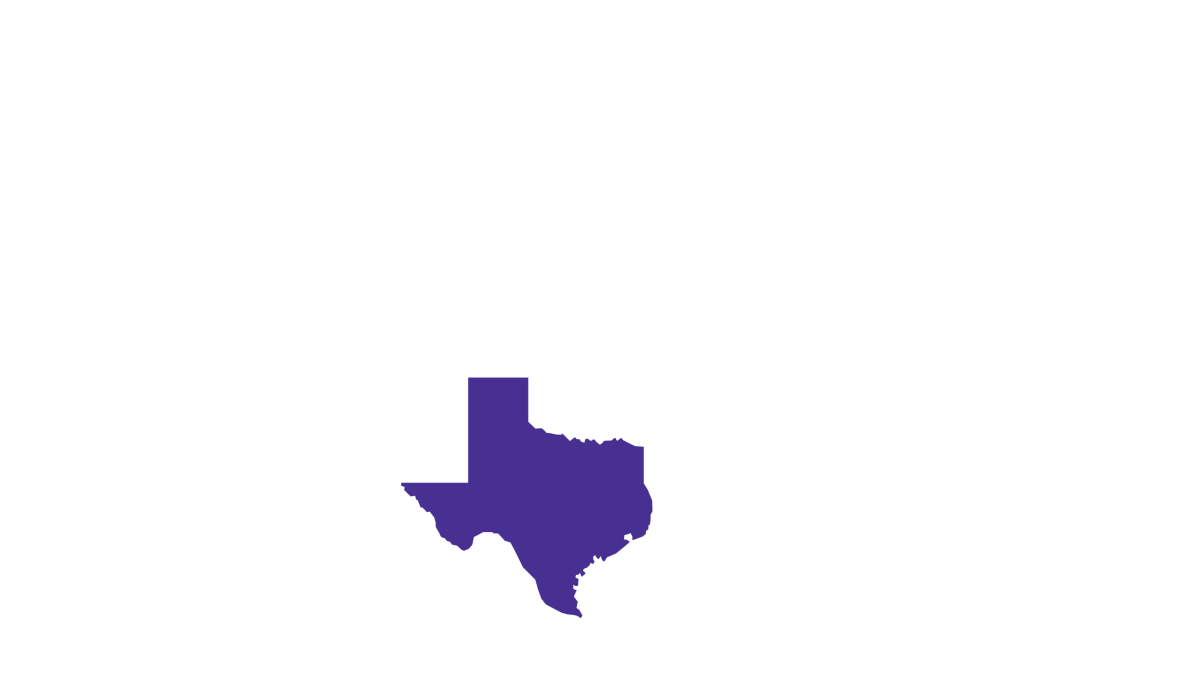What internet speed do I need for streaming?

If you’re wondering what is a good internet speed for streaming, each user in your household will need at least a minimum download speed of 25 Mbps and minimum upload speed of 5 Mbps for a smooth experience while streaming media on a live stream or watching HD/4K video across multiple devices. However, we recommend a cable or fiber hardwired connection with a router to help prioritize your network’s traffic.
This article will review the different speeds available and help you determine the best speed for your streaming needs.
What you'll learn:
Switch & save
Astound is the #1 cable ISP
Stream live content, work, surf, game and connect to multiple devices with speeds up to 1500* Mbps through our ultra‑reliable fiber‑powered network.*

What is the best internet for streaming?
Different Internet Service Providers (ISPs) provide various types of internet connections. These connection types have an impact on your speeds and online experience.
Let’s explore the different Internet connections available and determine which is best for streaming.
1. Cable and fiber-powered
Cable and fiber internet are hardwired connections offering fast, reliable and consistent speeds. Cable internet uses cable infrastructure to transmit data, while fiber uses fiber optic cables that transmit data as light pulses.
Fiber delivers the fastest internet speeds of any internet type, with high download and upload speeds.
Fiber optic technology ensures data is transmitted with lower latency (ping) and less data disruption, as light signals are less vulnerable to network interference. Fiber’s low latency and fast download and upload speeds make it the best choice for streaming.
Furthermore, cable and fiber are generally accessible, as wired internet infrastructure is present in most suburban and metropolitan areas.
2. 5G home internet
5G home internet is a wireless internet technology connection that uses 5G cell towers to transmit high-frequency signals called millimeter waves. It offers higher internet speeds and lower latency than previous 4G and 3G technologies.
While 5G home internet delivers speeds for streaming, it can present inconsistent and unreliable performance. 5G’s home internet wireless signals are prone to interference through latency, which can disrupt the streaming experience. Latency delays data transmission, resulting in buffering and interruptions, especially while live-streaming on Twitch or YouTube.
Other factors that affect 5G home internet speeds include:
- Network congestion caused by an increase in users.
- Increased distance between streaming devices and 5G cell towers.
- Interference from physical barriers between devices and the cell towers.
- Data caps imposed on 5G home internet plans.
- Unfavorable weather conditions like storms.
- Limited device compatibility.
Furthermore, 5G’s coverage is limited to cities and urban areas, as it is a newer technology. Be aware of 5G’s limitations before you decide if it’s the right option for your streaming needs.
The FWA technology gap
You deserve better internet
Fixed Wireless Access (FWA) uses radio waves which are impacted by obstacles like buildings and trees, resulting in reduced reliability.
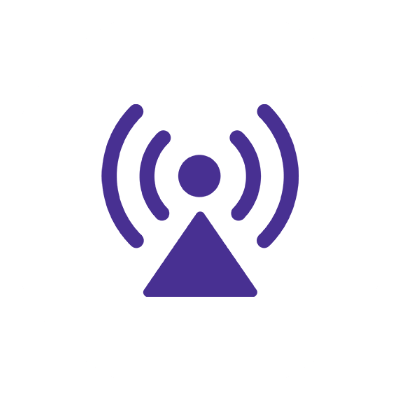
3. Mobile hotspot
A mobile hotspot is a feature on most smartphones that allows other devices to connect to the internet over a wireless network using cellular data. It is a backup option when your WiFi is down or you’re on the move.
Like 5G home internet, mobile hotspots transmit data wirelessly and are prone to latency.
Other disadvantages of mobile hotspots include the following:
- Slower speeds than traditional wired connections.
- Prone to network congestion when there’s a surge in users.
- Less reliability, as mobile signal strength depends on your location.
- Battery drain on your phone, especially when multiple devices are connected.
- Limitations on the number of simultaneously connected devices.
- Data caps imposed on mobile data plans.
You can also use portable hotspot devices as a hotspot rather than your mobile phone. These devices offer dedicated hardware for WiFi hotspots, have an extended battery life and can accommodate multiple devices simultaneously.
Learn more: How to make mobile data faster
While mobile hotspots are a convenient choice for streaming, keep in mind their data limitations, slow speeds and impact on your device’s battery life. Choose a data plan that meets your streaming demands and keep track of your data usage to avoid exceeding data caps.
4. Satellite
Satellite internet is an alternative option for streaming if you live in rural areas or are camping in an RV where other hardwired connections are unavailable.
While satellite internet speeds are improving, they still can’t match the reliability or high speeds of wired connections. You can stream using satellite internet, but you should keep a few caveats in mind. Limitations include:
- Higher latency than other internet connections.
- Slower speeds than cable and fiber connections.
- Low data caps on satellite internet plans.
- Frequent interruptions due to adverse weather conditions.
While satellite internet is a good alternative for streaming in remote or rural places, you should manage your expectations regarding consistency and speed.
5. ISP + Mobile carrier
You can get the best of both worlds by bundling internet and mobile services into one plan. This plan offers flexibility, convenience and is a cost saver too. Astound’s fiber-powered internet and cell phone plans give you reliable internet speeds that you need with nationwide 5G coverage at an affordable price.
Furthermore, you can customize your plan to cater to your streaming needs. You can also include TV services in your bundled plan and stream your favorite shows in one place.

What is a good internet speed for streaming?
Sufficient download and upload speeds are critical for a smooth experience while streaming content or uploading videos to platforms like YouTube or Twitch. While both speeds are essential for streaming, they serve different purposes. Let’s explore why they matter to streaming.
Download speed
Download speed is the rate at which data transfers from the internet to your device. It is measured in megabits per second (Mbps). For many online activities, a good download speed is the most essential factor.
When streaming, download speeds determine video playback and ensure that the video content loads quickly at the highest quality with less buffering or interruptions. Streaming 1080p and 4K content requires higher download speeds as they are more bandwidth-intensive, especially when running on multiple devices simultaneously.
Upload speed
Upload speed is the rate at which data is transmitted from your device to the internet. Similarly, it is measured in megabits per second.
If you create content and live stream it on YouTube or Twitch, a good upload speed for your internet connection matters most. Live streaming is a bandwidth-heavy activity that requires a fast upload speed to offer better video quality and maintain an uninterrupted stream.
Sometimes, your ISP’s advertised upload bandwidth and the actual upload speeds you experience can vary. You should test your internet speeds to determine whether your current upload speeds are enough to stream on your devices comfortably.
Data
Data refers to the amount of information transmitted over an internet connection in a particular period. It is measured in megabytes (MB), Gigabytes (GB), or terabytes (TB).
Streaming can consume a large amount of data, especially when watching or live streaming videos in higher resolutions like 4K. You must be mindful of your data usage, especially when streaming using a 5G home internet or a mobile hotspot plan, as they usually have a data cap. Exceeding the data limits can throttle your internet speed and lead to additional charges on your plan.
You can choose a lower streaming quality (SD) to save on data if you have a limited data plan or a data cap. However, if you are a professional live streamer or prefer HD and 4K content, a wired connection is the best option for you. Fiber and cable connections offer fast internet speeds with unlimited or higher data allowances that facilitate a smooth streaming experience.
Find your speed
What speed do you need?
Maybe you just need the essentials—or maybe you need to unleash the ultimate internet speed. Explore your options to get the best experience for every device in your home.
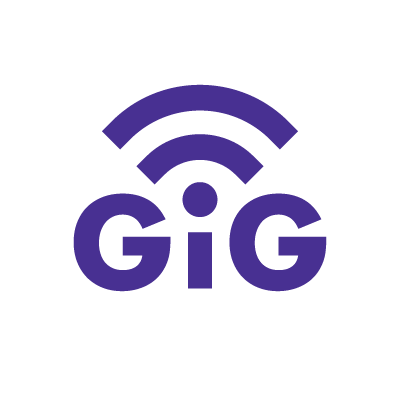
How many Mbps do I need for streaming?
The internet speeds required for streaming depend on the quality of the content you stream, the platform you are streaming from and the number of users connected to the internet connection.
Let’s look at the different internet speed ranges available and determine which one can handle your streaming requirements.
1500 Mbps - 1000 Mbps
Internet speeds that fall under this range are known as Gigabit speeds. Gigabit speeds offer a large download and upload bandwidth for data-intensive tasks and support households with multiple internet users simultaneously.
In a household with six people using the internet simultaneously, a Gigabit speed connection can facilitate tasks such as:
- Users A and B are streaming 4K videos on separate devices: 50 Mbps per hour
- User C is streaming 4K online gameplay content: 125 Mbps per hour.
- User D is hosting a live-stream video conference with a large audience: 100 Mbps per hour
- Five devices streaming music at 25 Mbps each: 125 Mbps
Other internet activities might be taking place in the background, such as:
- User E is working from home: 100 Mbps per hour
- User F is on VR gaming with an Oculus Quest 2: 400 Mbps per hour
- Smart devices accessing the internet: 100 Mbps
In this scenario, the total internet speed needed to handle these tasks is 1 Gbps. However, consider higher download speeds like 1.2 Gbps to adequately accommodate unexpected guests, increased streaming demands, or other additional online activities.
A wired connection like fiber internet will provide fast, reliable and consistent Gigabit internet speeds with a large bandwidth to facilitate these tasks.

600 Mbps - 300 Mbps
Speeds of 300 Mbps to 600 Mbps are enough to handle moderately intensive online tasks for a household of three to five users. For instance, in a family of five users, this range can support tasks like:
- Users A and B are streaming 4K videos on separate devices at 50 Mbps per hour.
- User C is streaming 4K online gameplay content at 125 Mbps per hour.
- User D is hosting a live-stream video conference with a large audience at 100 Mbps per hour.
Other online activities might be running in the background, such as:
- User E is working from home using 100 Mbps per hour.
- Smart home devices accessing the internet at 100 Mbps per hour.
Such tasks running simultaneously require 475 Mbps to be handled sufficiently. If you are concerned about unexpected users and increased devices or tasks connecting to your WiFi, check out higher speed tiers to accommodate them.
100 Mbps
A 100 Mbps internet speed connection is enough to handle streaming needs for one or two users in a household.
Some of the activities you can achieve with 100 Mbps include:
- Streaming HD and 4K content on various devices.
- Live-streaming content to audiences on YouTube or Twitch.
- Video conferencing when working at home.
Check out higher speed tiers if you are a professional live streamer to provide a better streaming experience to your audiences. Higher speed plans will offer more bandwidth to support other internet activities running simultaneously while you stream or watch high-quality content.
Get moving
Internet & TV services for your move
With great moving deals and flexible 2-hour appointment windows available 7 days a week, we’ll have you connected to the entertainment you love before you’ve even unpacked.

Streaming in an apartment vs a house
You must consider different factors before deciding which internet speed you need, based on whether you live in an apartment or a house. Let’s look at the factors that impact your speed selection based on your home.
In an apartment
If you live in an apartment, keep the following considerations in mind.
- Number of users and devices: Apartments are typically smaller and house one to four people. If you are alone with a few devices, consider a minimum download speed of 25 Mbps to 100 Mbps for your streaming needs. Check out higher speed tiers if you have two or more users with multiple devices connected and gaming or working from home.
- Provider options: Most apartments are found in cities and urban areas, presenting a wider pool of ISPs and internet types. Consider fiber and cable internet, as they are primarily found in urban areas and provide the best speeds for streaming.
- Distance from the router: Place your WiFi setup in the center of your room to ensure an even distance from your streaming devices. If you are concerned about your internet speeds, connect your streaming device directly to the router with an Ethernet cable to provide a faster internet connection.
- Network congestion: Apartments have a higher population density, with neighbors sharing the same internet infrastructure. Shared infrastructure can lead to network congestion and slower speeds during peak usage. Consider upgrading your internet speed to provide a steady and consistent connection and bandwidth, particularly during peak usage times.

In a house
Keep the following factors in mind if you live in a standalone house.
- Number of users and devices connected — Houses hold multiple people and devices simultaneously. If your household contains multiple internet users simultaneously, a high-speed Gigabit internet plan is required to handle all those tasks sufficiently.
- Home size and layout — Large houses require higher speeds to cover some areas of the house with poor internet coverage. Consider introducing mesh WiFi routers to expand your WiFi coverage and optimize internet performance. If your streaming devices are far from the primary router, place the mesh routers across the house to extend WiFi coverage.
- Provider options — You may have access to various ISPs and internet types depending on where you live. Fiber, cable and 5G home internet are widely available in cities and urban regions, while satellite internet is a viable choice in suburban or rural areas.
Learn more: How to set up your internet and WiFi in a new house.

Mesh WiFi with
eero Secure
Enhanced Whole Home WiFi enables multiple WiFi routers (or eeros®) to work as a team, resulting in improved range, speed and stability of your WiFi network. Plus, with eero Secure now included at no additional cost, it keeps your family safe with parental controls, ad blocking and internet backup so you’re always connected.
Best WiFi experiences for streaming
While reliable internet speeds and bandwidth are essential aspects of having a smooth experience working from home, so is having the best WiFi experience.
Check out our tips to make sure that your WiFi experience is optimized.
Use the right equipment (Mesh WiFi)
A mesh WiFi system is an extensive wireless network of interconnected routers to extend WiFi coverage throughout a home. Mesh routers provide the following benefits compared to a regular router:
- Multiple routers extend coverage throughout your home.
- The mesh WiFi system is scalable.
- Seamless roaming as devices can switch between routers.
- App-based network management.
- The ability to handle more devices simultaneously.
- Built-in parental control features.
While mesh WiFi systems can provide up to 1500 Mbps internet access, the actual speed you experience is determined by your devices’ ability to connect to the internet plan you subscribe to. To get maximum speeds from your internet connection, ensure you have new device models (laptops, phones or tablets). Older models may have outdated software that is incompatible with the modern WiFi 6 standards.
Regularly update your router’s firmware to maximize the internet connection’s speeds.
Optimize your wireless speeds
Having slow WiFi speeds when streaming is frustrating, but there are several ways you can increase your WiFi speeds to improve your streaming experience.
- Upgrade to Gigabit speeds
A hardwired cable or fiber internet connection provides faster and more reliable Gigabit speeds to improve your streaming experience. Gigabit speeds provide high download and upload speeds for your live streams, reduce buffering and lag while streaming and offer large bandwidth to multiple users streaming simultaneously. - Use the latest WiFi technologies
You can improve your WiFi speeds by accessing the next-generation WiFi 6 technology using a WiFi 6 router, which provides faster speeds, greater range, increased device capacity, and enhanced security measures. - Power cycle your devices
Power cycle your devices to reset the connections between your devices and the WiFi network. Regular device and router restarting can reduce latency in the network and clear blocked channels that interfere with your WiFi performance.
Troubleshoot your internet
Whenever you face internet connectivity issues, the first step to troubleshooting your internet is to identify whether the problem is with your connection or your equipment. Here are a few ways to troubleshoot your internet.
1. Equipment troubleshooting
You can determine if the internet problems result from malfunctioning equipment by following these steps.
-
- Check that all wires and connections are securely plugged in.
- Power cycle your router and modem.
- Confirm that your router and modem’s internet signal light is turned on.
- Place your router away from other electronic equipment that may cause network interference.
- Update your router’s firmware in the firmware settings.
2. Connection Troubleshooting
Follow these steps to diagnose and resolve internet connectivity issues.
-
- Run a speed test to assess your current internet speeds.
- Move your devices closer to the router.
- Use the troubleshooting tool included with your device’s operating system.
- Disable a VPN if you are currently using one.
- Reset your device’s network settings.
- Run a virus scan to identify and remove malware from your devices.
- Visit your ISP’s website or call customer service to check for any outages in your area.
- Contact your ISP for further assistance.

eero Plus
eero Plus protects your family online with a password manager to safely create, store and share passwords, virus and malware protection and a VPN that lets you browse the web safely and securely.
Secure your home internet
Securing your home internet provides a safe streaming experience for your household and protects your personal information from cybercrime threats. Astound’s eero Plus Whole WiFi security has features that enhance your home network security and protect all your devices.
The eero Plus security features include:
-
- Safe and secure VPN protection for safe browsing.
- Malware and virus scanning to prevent malicious software and viruses from infiltrating your device.
- Password manager to securely store passwords and streaming account login credentials.
- Blocking intrusive ads for distraction-free streaming.
- Family-safe browsing through content filters to restrict inappropriate streaming content.
Always maintain your WiFi security to avoid any potential internet security challenges.
Build your plan
Your perfect plan is just a click away
Get the speeds, WiFi, mobile and TV plans you need all at an affordable price. Bundle your services with Astound and see how much you can save.

Frequently asked questions
What is the minimum internet speed for streaming?
The minimum internet speeds required for streaming can vary depending on the video quality of the content and the platform used. You need at least 25 Mbps download and 5 Mbps upload speeds to stream 4K and HD videos. Have an internet plan with speeds exceeding the minimum required to enjoy a smoother streaming experience.
Is 1 Gig internet good for streaming online?
Yes, 1 Gigabit-internet provides sufficient speeds and bandwidth to handle streaming online. It offers enough speeds to stream HD and 4K content and supports content creators in live-streaming high-quality videos to their audiences.
How much internet data do I need for streaming?
The amount of internet data required for streaming varies depending on the video quality of the content and the platform used. You will require an unlimited data plan if you stream 4K videos with multiple users streaming simultaneously.
Is WiFi 6 good for streaming?
WiFi 6 is excellent for streaming because it provides the following advantages:
- It supports higher data transfer speeds, such as Gigabit speeds.
- It reduces latency for more responsive live streaming.
- It can accommodate multiple devices streaming simultaneously.
- It offers advanced security features for your network and devices.
Is 100 Mbps internet speed good for streaming?
Yes, 100 Mbps internet speed is good for streaming HD and 4K content on multiple devices. For reference, streaming platforms like Netflix and YouTube require about 5 Mbps for HD content and around 15 Mbps for 4K videos. A 100 Mbps connection provides ample speeds and bandwidth to handle streaming with minimal buffering or lagging.
Is 300 Mbps fast enough for Netflix?
A 300 Mbps internet connection is more than fast enough for streaming on Netflix. With such speeds, you can stream 4K videos simultaneously on multiple devices and still have enough bandwidth for different internet activities.
*Internet speeds may vary & are not guaranteed. Certain equipment may be required to reach advertised speeds. DOCSIS 3.1 modem with 2.5GE physical LAN port is required for 1 Gigabit speeds and higher. See astound.com/yourspeed for why speeds may vary. To view Astound’s FCC Network Management Disclosure see astound.com/policies-disclaimers. Modem required for Internet service. No contract required. Subject to availability. We substantiate that the cable modem equipment provided, and the configuration of such cable modem, meets the broadband speeds advertised when attached to a wired connection based on SamKnows testing procedures.
Not all services, speeds, packages, equipment, channels, tiers, pricing, streaming services, product offerings and product features are available in all areas. Offers valid only for new residential customers or previous customers with account in good standing who have not had our service within the last 60 days. All names, logos, images and service marks are property of their respective owners. Other restrictions may apply.
While we have made every attempt to ensure that the information contained in this site has been obtained from reliable sources, Astound Broadband is not responsible for any errors or omissions, or for the results obtained from the use of this information. All information in this site is provided “as is”, with no guarantee of completeness, accuracy, timeliness and without warranty of any kind, express or implied, including, but not limited to warranties of performance, merchantability and fitness for a particular purpose. Certain links in this site connect to other websites maintained by third parties over whom Astound Broadband has no control. Astound Broadband makes no representations as to the accuracy or any other aspect of information contained in other websites.
eero Plus is available for an additional $9.99/month and requires subscription to whole home WiFi powered by eero.
